Sisters in print make their mark
For International Women’s Day, Lucy Popescu offers her pick of the latest books by and about women
Thursday, 7th March — By Lucy Popescu
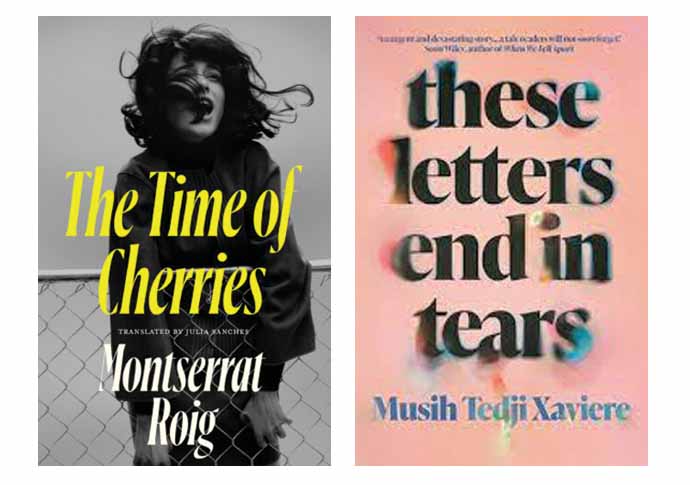
INTERNATIONAL Women’s Day (IWD) is a time to celebrate women and all their achievements but it’s also an important date to defend human rights, challenge misogyny and highlight gender inequalities.
Originally marked in March 1911, it’s now a day of collective global activism meant to inspire and connect everyone committed to women’s equality.
IWD has a particular importance in Iran. Women are at the forefront of many demonstrations and the date is often used to protest against female repression and human rights violations. After the death of 22-year-old student Mahsa Amini on September 16, 2022, women took to the streets again. This month many are refusing to vote in the elections, claiming the system is rigged and that nominees are “approved” by the government.
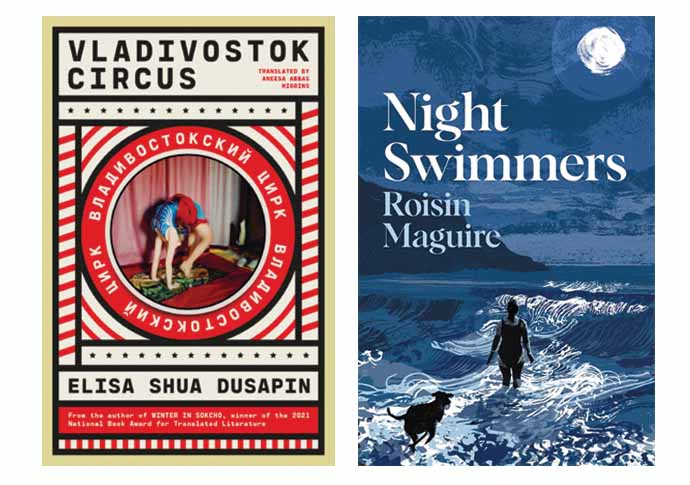
In Woman, Life, Freedom (Seven Stories Press) Marjane Satrapi, author of the graphic novel Persepolis, and others visually describe the current unrest gripping Iran.
Closer to home, Dr Marieke Bigg’s This Won’t Hurt (Hodder) is about all the ways medicine is not gender-neutral, from research to treatment to diagnosis. From the way pain is felt, to how heart attacks are diagnosed, to the role society plays in the health of the body, today’s medical landscape is one that was designed for, and by, men. Throughout history, prevailing attitudes have had terrible repercussions for women and their bodies. Blending specific examples with historical and cultural context, and reflecting on her own personal experience with healthcare, Bigg explores how women’s bodies have been ignored, misunderstood and misdiagnosed, while keeping an eye to a better future.
In Hardy Women (William Collins), Paula Byrne re-examines Thomas Hardy’s life through the eyes of the women who made him – mother, sisters, girlfriends, wives, muses. The story veers from shocking scenes such as his obsession with the sight of a woman hanged, to poignant vignettes of unfulfilled passion, to fascinating details of working women’s lives in the 19th century.
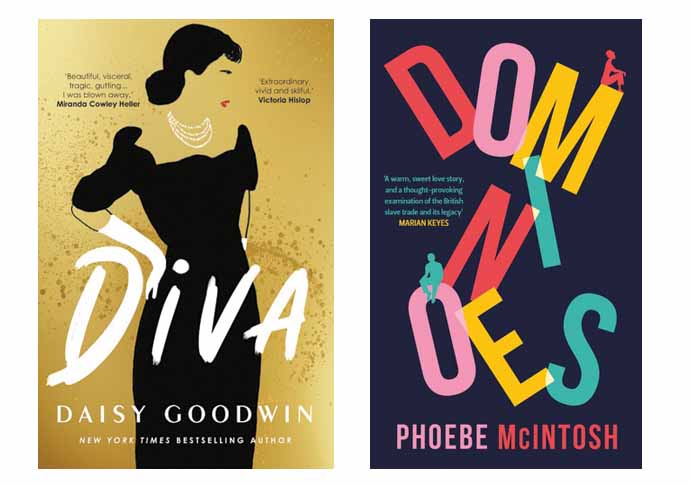
Liz Jensen’s memoir Your Wild and Precious Life (Canongate) tackles family grief and celebrates resilience. Jensen’s son, a zoologist, conservationist and ecological activist was 25 when he collapsed and died unexpectedly. Jensen relates how a mother rebuilds herself and rediscovers the enchantment of the living world.
The following novels explore diverse themes and issues and transport us across time and continents.
Vladivostok Circus by Elisa Shua Duspin (Daunt Books), translated by Aneesa Abbas Higgins, explores collaboration, creativity and belonging. Nathalie arrives at the circus in Vladivostok, Russia, fresh out of art college in Geneva. She is there to design the costumes for a trio of artists who are due to perform one of the most dangerous acts of all: the Russian bar. When the season at Vladivostok winds down, the performers head home; all except the Russian bar trio and their manager.
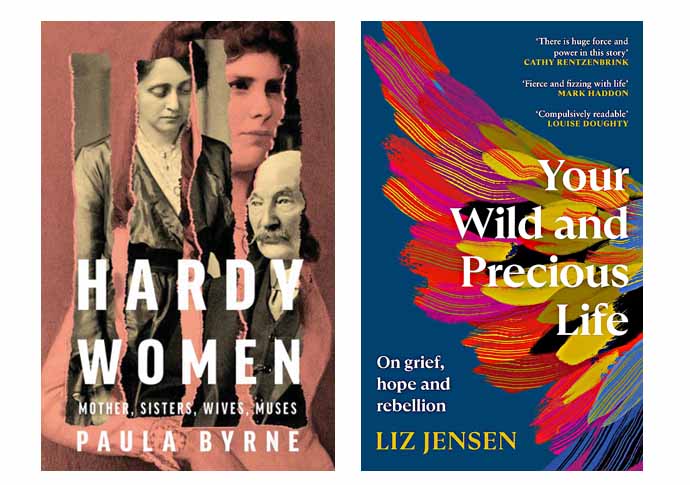
Roisin Maguire’s Night Swimmers (Serpent’s Tail) is set in Ballybrady, a village on the east coast of Northern Ireland. Grace fills her days with swimming, fishing, quilting and baiting the tourists who arrive from the city with more money than sense. She hasn’t left home since a traumatic stay in London as a young woman at the end of the 1980s. One of the tourists is Evan. When Grace saves his life in a kayaking accident and Evan’s troubled son arrives, the three are drawn together and forced to confront their personal traumas.
Hanako Footman’s debut novel Mongrel (Footnote Press) interweaves the voices of three young women whose lives collide in unexpected ways. After losing her Japanese mother, Mei grows up in suburban Surrey, suppressing her heritage and growing love for her best friend Fran. Yuki leaves the Japanese countryside to pursue her dream of becoming a concert violinist in London. Far from home, she is charmed by her older teacher. Haruka attempts to navigate Tokyo’s nightlife and its many vices, working as a hostess in seedy bars. She grieves for a mother who hid so much from her, until finally one of those secrets comes to light.
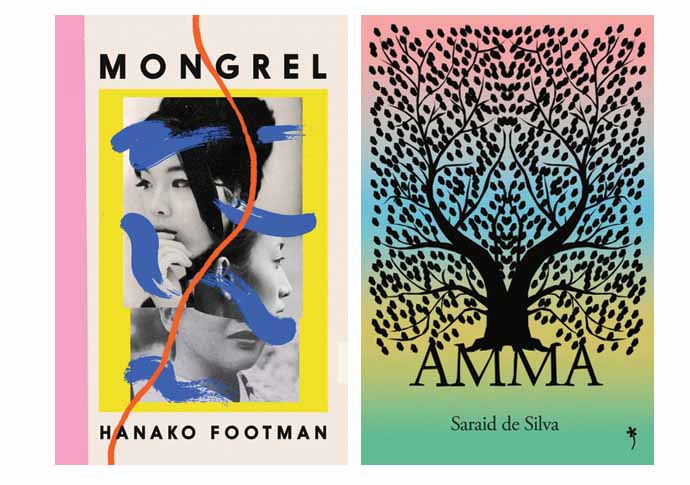
In Diva (Aria), Daisy Goodwin revisits the legend of Maria Callas. In the glittering world of opera, Callas is known as la divina: the divine one. Yet her fame has been hard won: raised in Nazi-occupied Greece by a mother who exploited her, Maria learned early in life how to protect herself. When she meets shipping magnate, Aristotle Onassis, she believes she’s found a man who sees the woman rather than the soprano.
When the international press announce that Onassis will marry former First Lady Jacqueline Kennedy, Maria is left to pick up the pieces.
Phoebe McIntosh’s Dominoes (Chatto & Windus) looks at the repercussions of the British slave trade on women’s lives. When Layla and Andy first meet, they can’t believe they have the same surname. But Sera, Layla’s best friend, has her doubts about Andy. As the pair fall deeper in love, Sera becomes more vocal about Layla settling down with a white boy. A few weeks before their wedding, Layla makes a devastating discovery about their shared name, and begins to uncover parts of her history and identity that she had never imagined. And now, she faces an impossible choice, between past and future, friendship and marriage, the personal and the political.
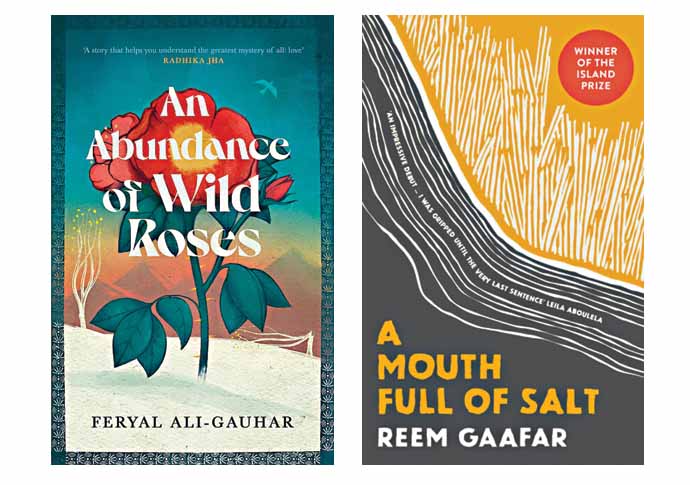
Catalan author and journalist, Montserrat Roig died tragically young. Deemed a classic of Catalan literature, The Time of Cherries (Daunt Books), translated by Julia Sanches, is set in the final days of Franco’s dictatorship with a focus on women’s voices and with Barcelona as its atmospheric backdrop.
In Musih Tedji Xaviere’s These Letters End in Tears (Jacaranda books), Bessem first notices Fatima on the soccer field; she’s the only woman playing. In Cameroon, a country where same-sex relationships are punishable by law, the odds are stacked against them.
Feryal Ali-Gauhar’s An Abundance of Wild Roses (Canongate) combines lyrical storytelling with contemporary themes of gender violence, tradition and patriarchy. In the Black Mountains of Pakistan, the head of the village is beset with problems. His daughter receives a love letter and incurs her father’s wrath. A lame boy foretells disaster, but nobody is listening. Beaten by her addict husband for bearing him only daughters, a woman is pregnant again – but can this child save her?
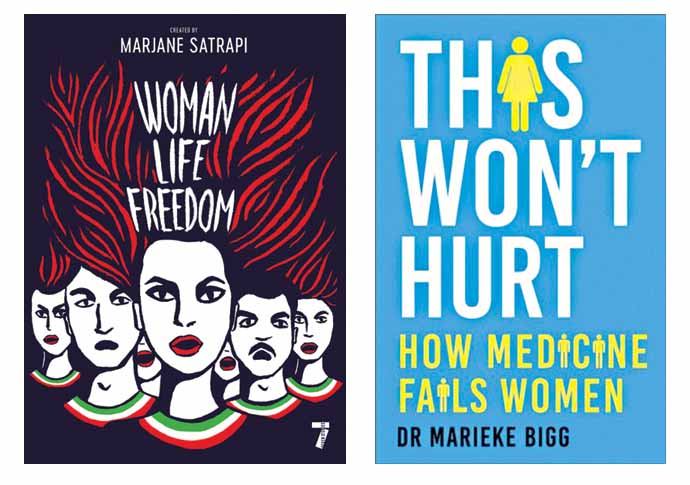
Published next month, A Mouthful of Salt by Reem Gaafar (Saqi) is set in a farming village in Sudan. A small boy drowns, the animals die of a mysterious illness and the date gardens catch fire. The villagers whisper of a sorceress who dwells at the foot of the mountains. In Khartoum, a single mother makes her way in a world that wants to keep girls and women back. As civil war swells, her position in the capital becomes untenable. Gaafar reveals a country on the brink of change as its women decide for themselves which traditions are fit for purpose and which prophecies to rewrite.
Also look out for Amma (Weatherglass Books) by Saraid de Silva. Set in Sri Lanka, Singapore, New Zealand, Australia and London, it explores family and displacement over three generations in the Sri Lankan diaspora.
• Bigg, McIntosh and Xaviere will be appearing at the inaugural Alternative Book Fair, developed by Islington Libraries and Hackney-based publisher, Indie Novella. It’s taking place from March 13-16 in Islington’s Central Library. All events are free. See www.alternativebookfairlondon.co.uk/
• Hear Laura Bates talking about her 2022 book Fix the System, Not the Women at the North London Festival in Alexandra Palace (March 21-24). www.alexandrapalace.com/whats-on/north-london-book-festival/